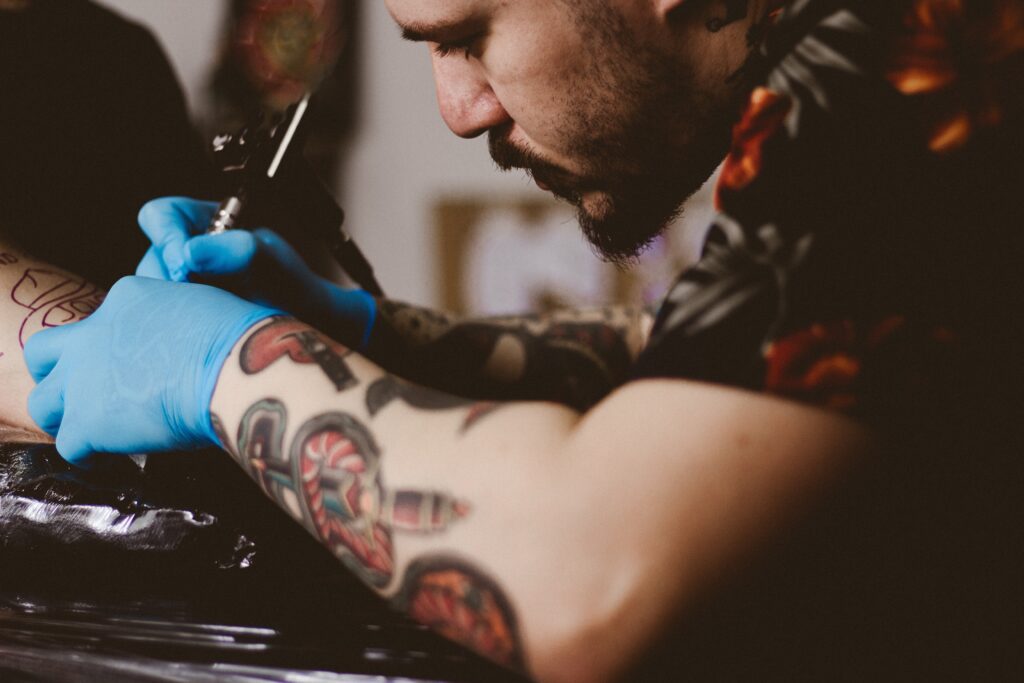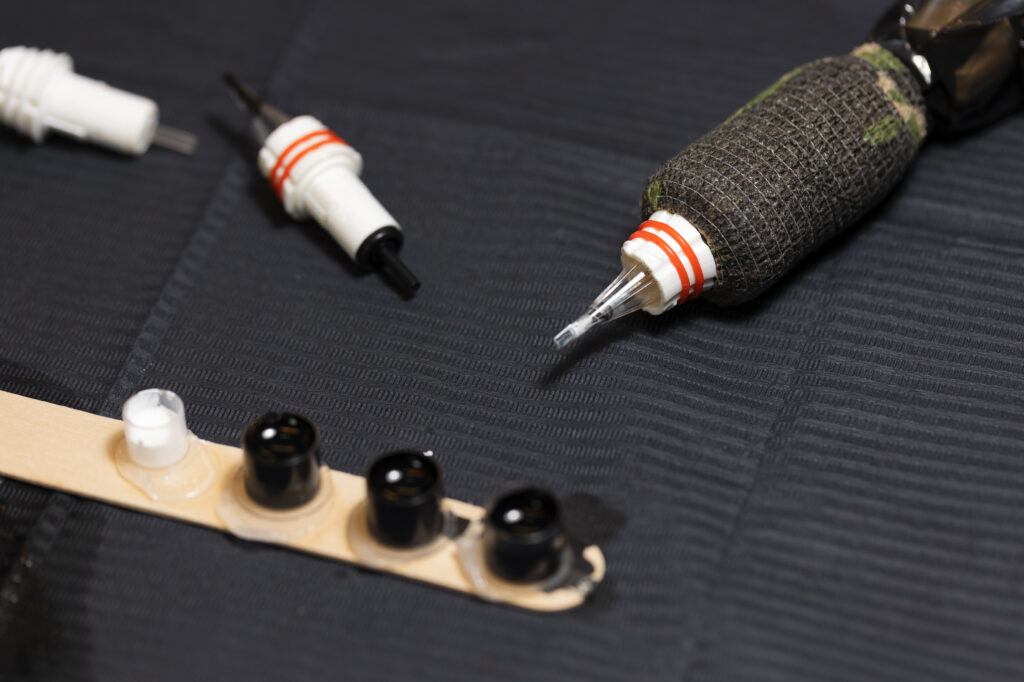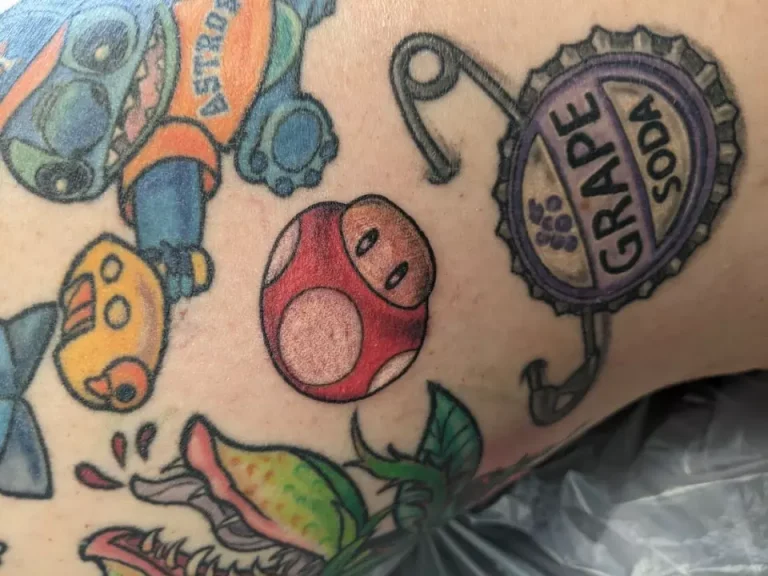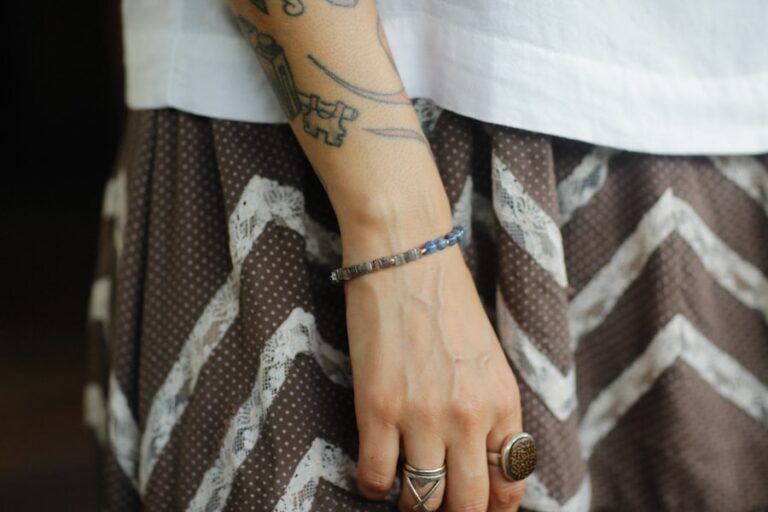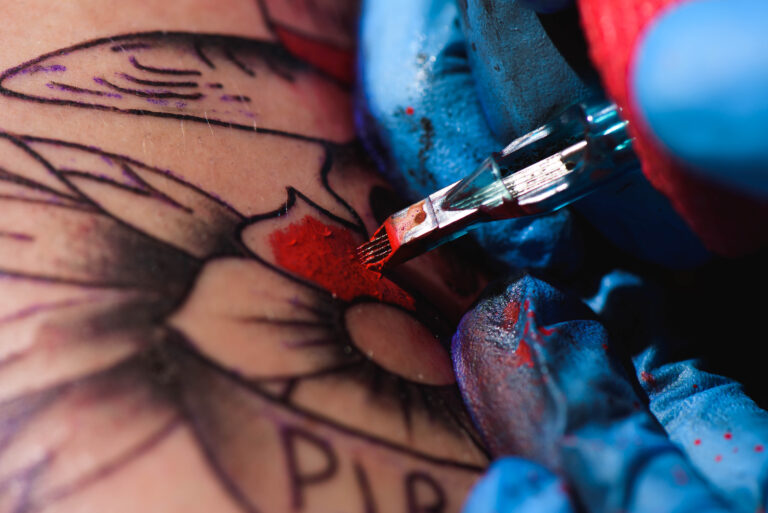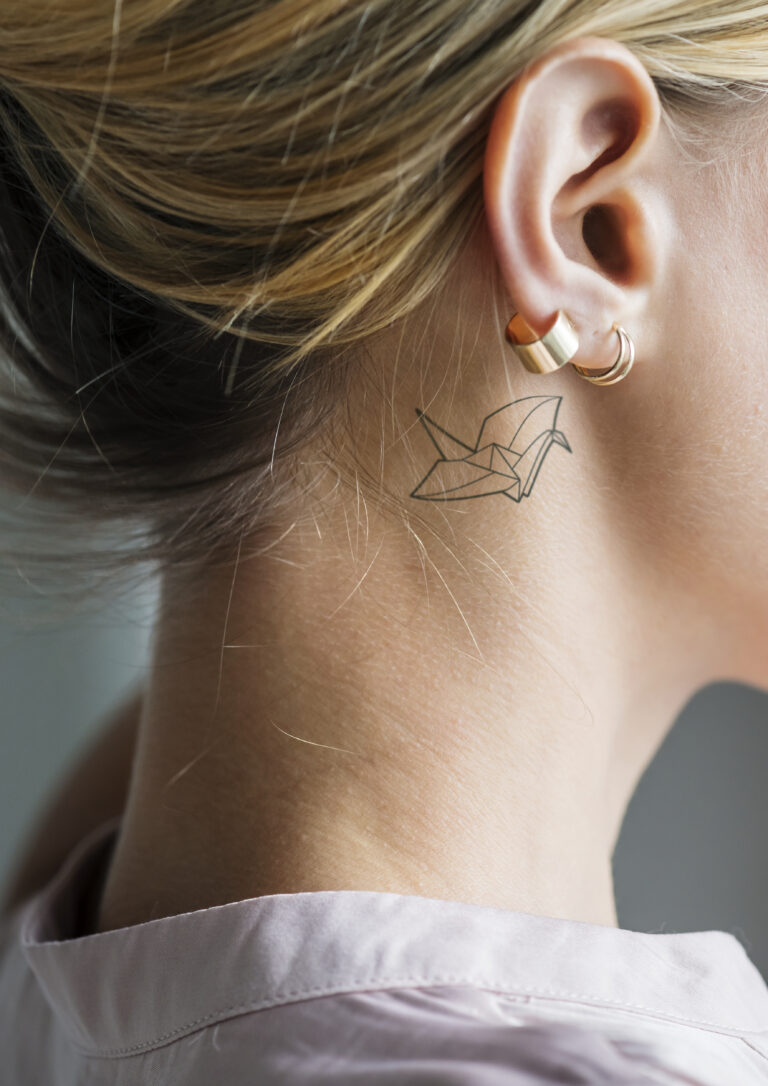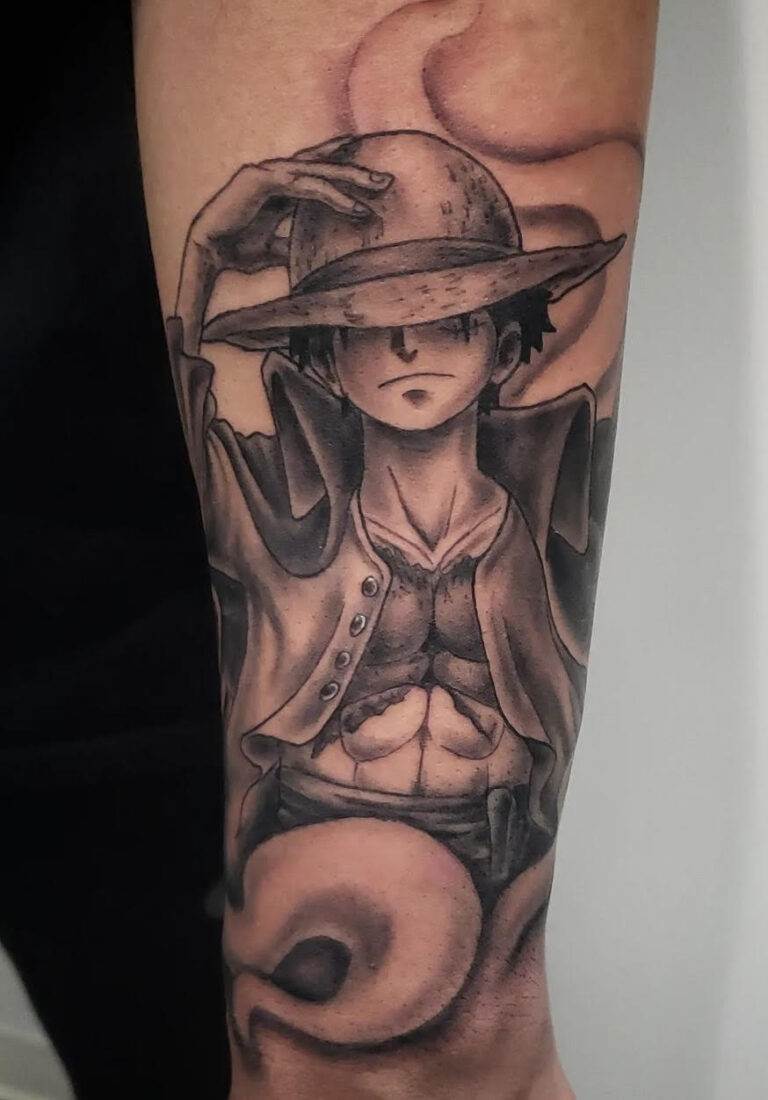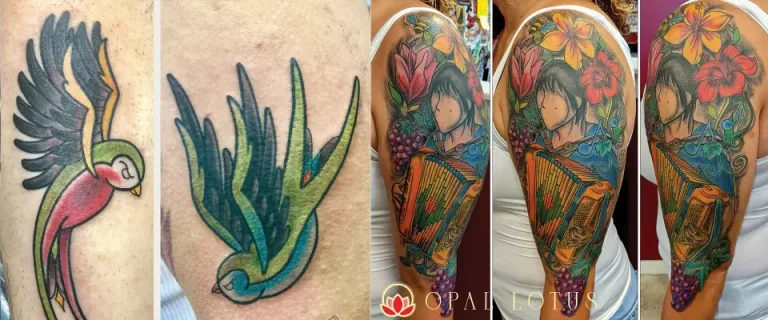The process of getting a tattoo is not just a matter of artistry and skill; it also involves significant physiological changes in the body. When ink is injected into the skin, the body perceives this as an injury, triggering a healing response. Nutrition and hydration play crucial roles in this healing process.
Proper nutrition provides the body with the necessary building blocks to repair tissues, while adequate hydration ensures that these nutrients are effectively transported to where they are needed most. Without a focus on these two aspects, the healing process can be prolonged, leading to complications such as infections or unsatisfactory results. Moreover, the skin is the largest organ of the body, and its health is directly influenced by what we consume and how well we hydrate.
A well-nourished body can respond more efficiently to the trauma of tattooing, reducing inflammation and promoting faster recovery. Conversely, neglecting nutrition and hydration can lead to dry skin, which may affect how the tattoo heals and ultimately looks. Therefore, understanding the importance of these factors is essential for anyone considering a tattoo, especially if they want to ensure that their new ink heals beautifully and remains vibrant for years to come.
Key Takeaways
- Proper nutrition and hydration are crucial for the healing of a new tattoo
- Essential nutrients for tattoo healing include vitamin C, vitamin E, zinc, and protein
- Stay hydrated for faster tattoo healing by drinking plenty of water and avoiding alcohol and caffeine
- Avoid foods high in sugar, processed foods, and excessive alcohol for quick tattoo healing
- Mistakes to avoid for tattoo healing include overexposure to sun, using harsh soaps, and picking at the tattoo
- Supplements like vitamin D, omega-3 fatty acids, and collagen can accelerate tattoo healing
- Long-term tattoo care requires a balanced diet, staying hydrated, and protecting the tattoo from sun exposure
- Consultation with a nutritionist can provide personalized guidance for optimal tattoo healing and long-term care
Essential Nutrients for Tattoo Healing
When it comes to healing a tattoo, certain nutrients stand out as particularly beneficial. Proteins are fundamental, as they are the building blocks of skin tissue. Consuming adequate amounts of protein helps in the repair and regeneration of skin cells, which is vital after the trauma of tattooing.
Foods rich in protein, such as lean meats, fish, eggs, legumes, and dairy products, should be prioritized in the diet during the healing phase. In addition to protein, vitamins play a significant role in skin health and healing. Vitamin C is essential for collagen production, which is crucial for skin repair.
Citrus fruits, strawberries, bell peppers, and broccoli are excellent sources of this vitamin. Vitamin A also contributes to skin health by promoting cell turnover and repair; foods like carrots, sweet potatoes, and spinach are rich in this nutrient. Furthermore, zinc is another critical mineral that supports immune function and aids in wound healing.
Foods such as nuts, seeds, whole grains, and shellfish can help ensure adequate zinc intake during the recovery period.
Hydration Hacks for Faster Tattoo Healing

Staying hydrated is one of the simplest yet most effective ways to promote faster tattoo healing. Water plays a vital role in maintaining skin elasticity and moisture levels, which are crucial for optimal healing. One effective hydration hack is to carry a reusable water bottle throughout the day.
This not only serves as a reminder to drink more water but also makes it convenient to stay hydrated on the go. Aim for at least eight glasses of water daily, but individual needs may vary based on activity levels and climate. Incorporating hydrating foods into your diet can also enhance your hydration efforts.
Fruits and vegetables with high water content—such as cucumbers, watermelon, oranges, and lettuce—can contribute significantly to your overall fluid intake. Additionally, herbal teas can be a great alternative to plain water, providing hydration while also offering various health benefits depending on the type of tea consumed. By combining these strategies, you can create a comprehensive approach to hydration that supports your body’s healing processes effectively.
Foods to Avoid for Quick Tattoo Healing
While certain foods can aid in tattoo healing, others can hinder the process significantly. It’s essential to be mindful of what you consume during this critical time. Processed foods high in sugar and unhealthy fats can lead to inflammation in the body, which may slow down healing and increase the risk of complications such as infections or scarring.
Fast food items and sugary snacks should be minimized or eliminated from your diet while your tattoo heals. Additionally, alcohol consumption can negatively impact the healing process. Alcohol dehydrates the body and can impair immune function, making it more challenging for your body to fight off potential infections.
Spicy foods may also cause irritation or inflammation in some individuals, particularly if they have sensitive skin or are prone to allergic reactions. By avoiding these foods and focusing on nourishing options instead, you can create an environment conducive to quick and effective tattoo healing.
Hydration Mistakes to Avoid for Tattoo Healing
While staying hydrated is crucial for tattoo healing, there are common mistakes that individuals often make that can undermine their efforts. One significant error is relying solely on caffeinated beverages for hydration. While coffee and tea can contribute to fluid intake, excessive caffeine can lead to dehydration if consumed in large quantities.
It’s essential to balance caffeinated drinks with plenty of water throughout the day. Another mistake is neglecting hydration during physical activities or hot weather. Sweating can lead to significant fluid loss, which may not be replenished if one does not consciously increase their water intake during these times.
Additionally, some people may overlook their hydration needs simply because they do not feel thirsty; however, thirst is not always an accurate indicator of hydration status. It’s advisable to drink water regularly throughout the day rather than waiting until you feel thirsty.
Supplements for Accelerated Tattoo Healing

In addition to focusing on nutrition and hydration through food sources, certain supplements can further support accelerated tattoo healing. Omega-3 fatty acids are known for their anti-inflammatory properties and can help reduce swelling and promote skin health. Fish oil supplements or plant-based alternatives like flaxseed oil can be beneficial additions to your regimen during the healing process.
Another supplement worth considering is vitamin E, which is often touted for its skin benefits. It can help improve skin elasticity and reduce scarring when applied topically or taken as a supplement. Additionally, collagen supplements may support skin repair by providing the necessary amino acids that contribute to collagen synthesis in the body.
However, it’s essential to consult with a healthcare professional before starting any new supplements to ensure they are appropriate for your individual needs.
Hydration and Nutrition Tips for Long-Term Tattoo Care
Once your tattoo has healed, maintaining proper hydration and nutrition remains vital for long-term care. Healthy skin is essential for preserving the vibrancy of your tattoo over time. Continuing to drink plenty of water will help keep your skin hydrated and elastic, reducing the likelihood of fading or cracking in your ink.
In terms of nutrition, incorporating a balanced diet rich in antioxidants can help protect your skin from damage caused by environmental factors such as UV rays and pollution. Foods like berries, nuts, green leafy vegetables, and whole grains should be staples in your diet even after your tattoo has healed. Additionally, using sunscreen on your tattooed skin when exposed to sunlight will help prevent fading and maintain its appearance for years to come.
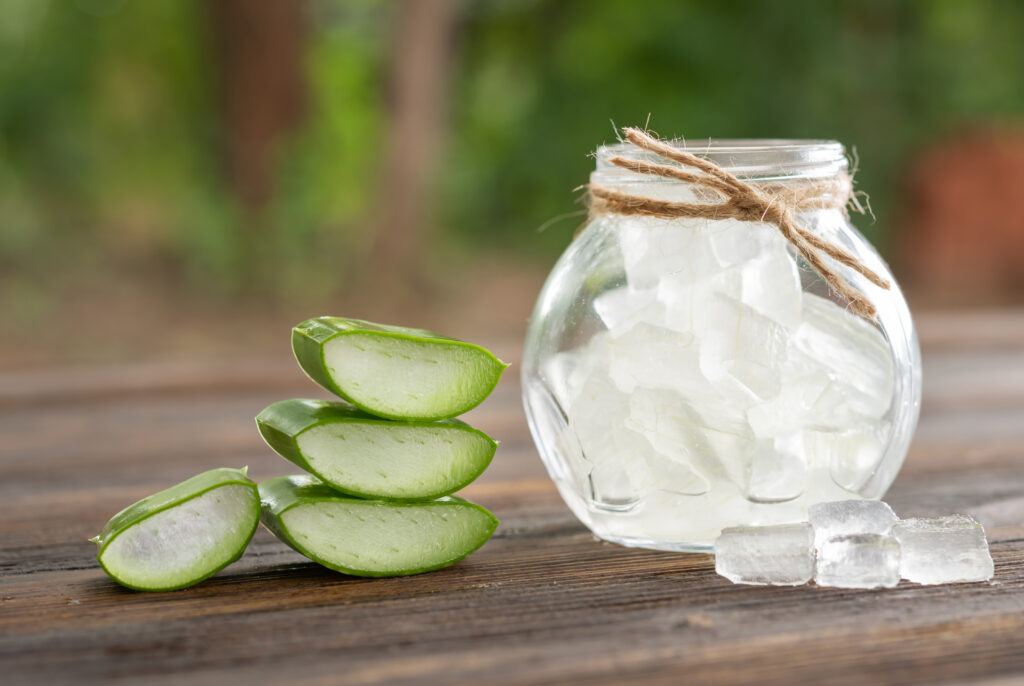
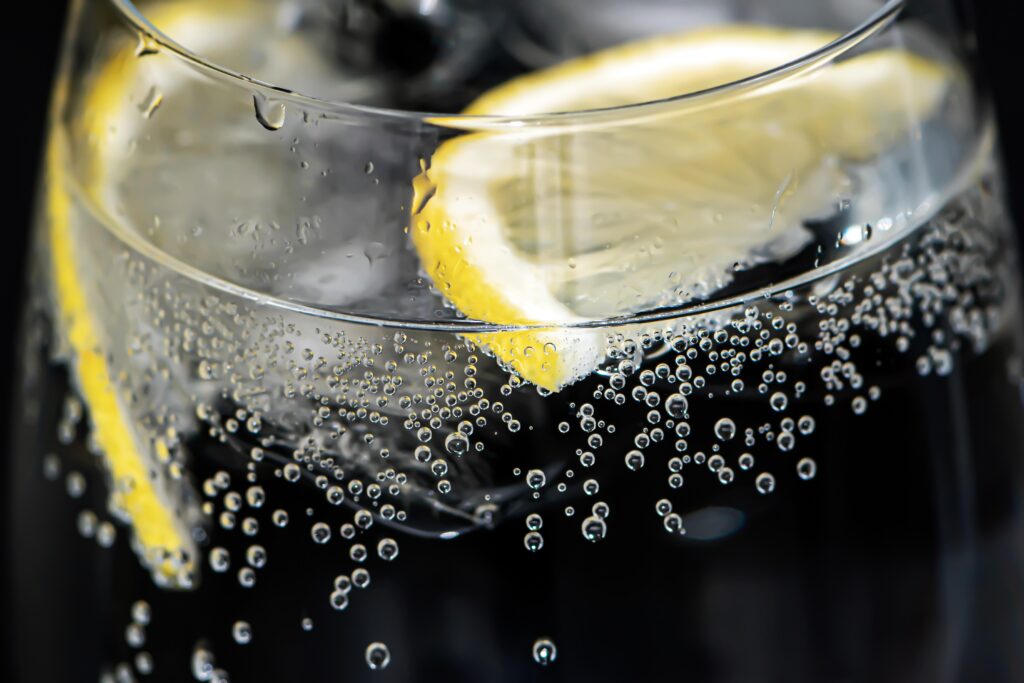
Consultation with a Nutritionist for Optimal Tattoo Healing
For those seeking personalized guidance on nutrition and hydration during their tattoo healing journey, consulting with a nutritionist can be incredibly beneficial. A qualified nutritionist can assess individual dietary needs based on lifestyle factors such as activity level, existing health conditions, and personal goals related to tattoo care. They can provide tailored advice on meal planning and hydration strategies that align with your specific requirements.
Moreover, a nutritionist can help identify any potential deficiencies that may hinder healing or overall skin health. By working with a professional who understands the intricacies of nutrition in relation to skin health and recovery processes, you can optimize your approach to tattoo care and ensure that you are doing everything possible to support your body during this important time. In conclusion, understanding the significance of nutrition and hydration in tattoo healing cannot be overstated.
By focusing on essential nutrients, staying adequately hydrated, avoiding harmful foods and habits, considering supplements when appropriate, and seeking professional guidance when needed, individuals can enhance their tattoo healing experience significantly. This holistic approach not only promotes faster recovery but also contributes to long-term skin health and vibrant tattoos that stand the test of time.
FAQs
What are some nutrition hacks for healing tattoos quickly?
Some nutrition hacks for healing tattoos quickly include consuming foods high in vitamin C, vitamin E, zinc, and protein. These nutrients can help promote skin healing and reduce inflammation.
How does hydration affect tattoo healing?
Proper hydration is essential for tattoo healing as it helps maintain skin elasticity and promotes overall skin health. Drinking plenty of water can also help flush out toxins and reduce the risk of infection.
What are some hydration hacks for healing tattoos quickly?
Some hydration hacks for healing tattoos quickly include drinking plenty of water, avoiding alcohol and caffeine, and using moisturizing lotions or ointments to keep the tattooed area hydrated.
Are there any specific foods to avoid during tattoo healing?
During tattoo healing, it’s best to avoid foods high in sugar, processed foods, and foods that may cause inflammation, such as fried foods and excessive amounts of dairy or red meat.
How long does it typically take for a tattoo to heal?
Tattoo healing time can vary depending on the size and location of the tattoo, as well as individual factors such as skin type and overall health. In general, it can take 2-3 weeks for a tattoo to fully heal.

Nutrition and Hydration Hacks for Speedy Recovery

